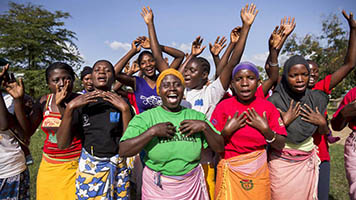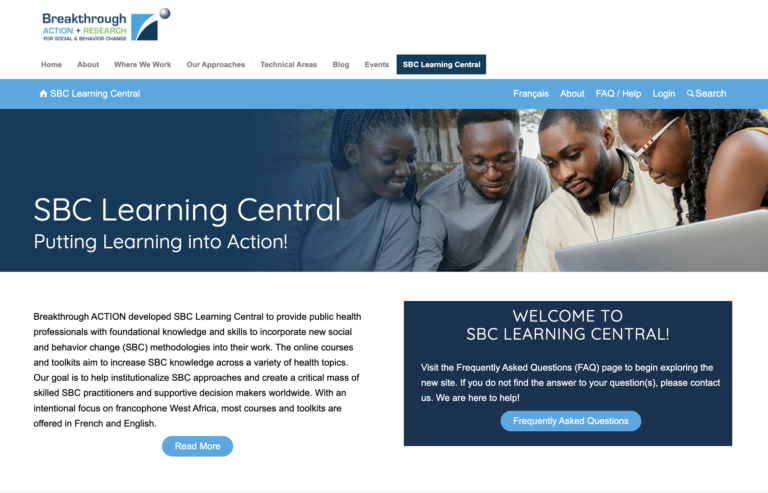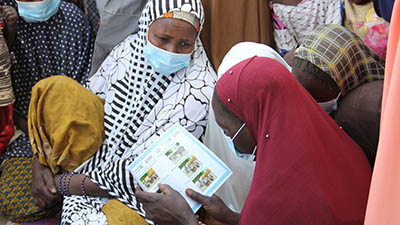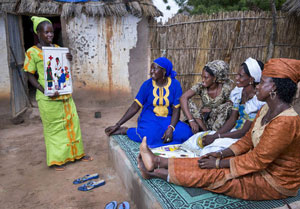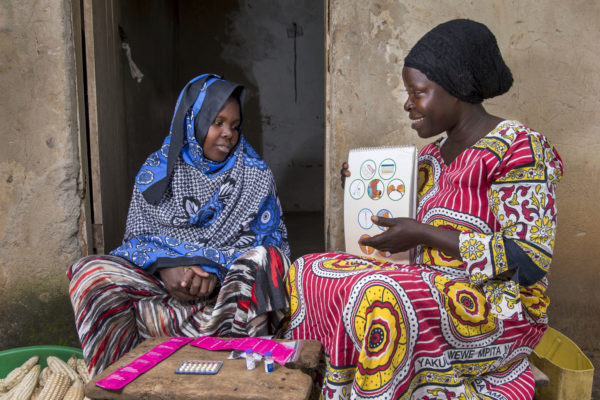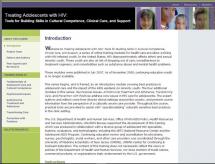Engaging Communities for Reproductive Health and Family Planning [Course]/Mobiliser les communautés pour la santé reproductive et la planification familiale [Cours]
Community engagement is critical for encouraging positive behaviors and addressing social and structural barriers to reproductive health and family planning (RH/FP). Community engagement can foster increased uptake of RH/FP services, improved provider-client interactions, and enhanced partnership and social accountability between health and community systems.
This is a skills-building, online course for Ministry of Health staff, NGO program managers, and donor organization staff to learn how to work with communities to build local strengths and support community-led action for RH/FP issues. The course consists of six sessions structured around the adapted Community Action Cycle. It will prepare learners with key steps for designing and managing effective community engagement programming, including the process, principles, and values of community engagement and the time, staffing, and budget needed to carry out community engagement for RH/FP.
Mobiliser les communautés pour la santé reproductive et la planification familiale [Cours]
L’engagement communautaire (EC) est essentiel pour encourager les comportements positifs et surmonter les obstacles sociaux et structurels à la santé reproductive et la planification familiale (SR/PF). L’EC peut favoriser une utilisation accrue des services de SR/PF, de meilleures interactions prestataires-clients, un partenariat et une redevabilité sociale renforcés entre les systèmes de santé et communautaires.
Il s’agit d’un cours de renforcement des capacités destiné au personnel des Ministères de la Santé, aux chargés de programmes des ONG et au personnel des organisations donatrices sur la manière de mobiliser les communautés pour résoudre les problèmes de santé reproductive et de planification familiale. Le cours comprend six sessions et est structuré autour des phases et des étapes du Cycle d’Action Communautaire (CAC). Ce cours de deux heures préparera les apprenants aux étapes clés de la conception et de la gestion d’un programme de mobilisation communautaire efficace pour la SR/PF.
Last modified: November 13, 2023
Source: Johns Hopkins Center for Communication Programs
Year of Publication: 2023

